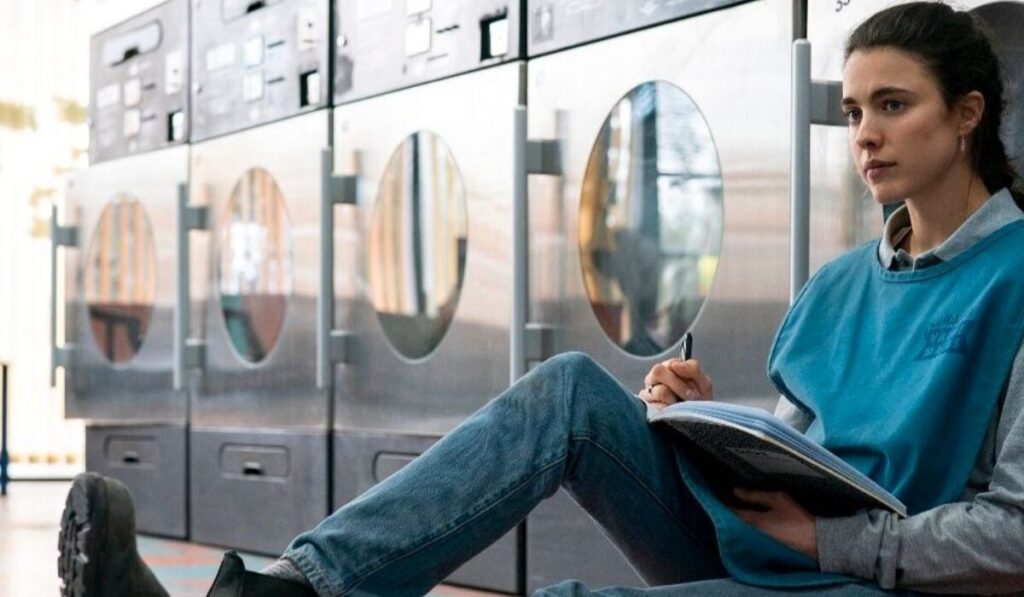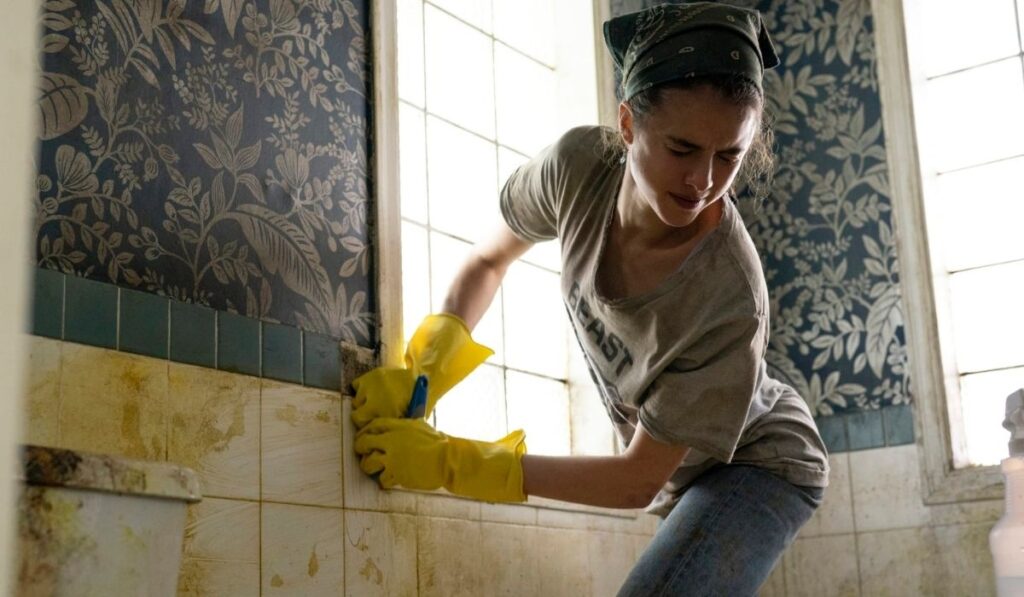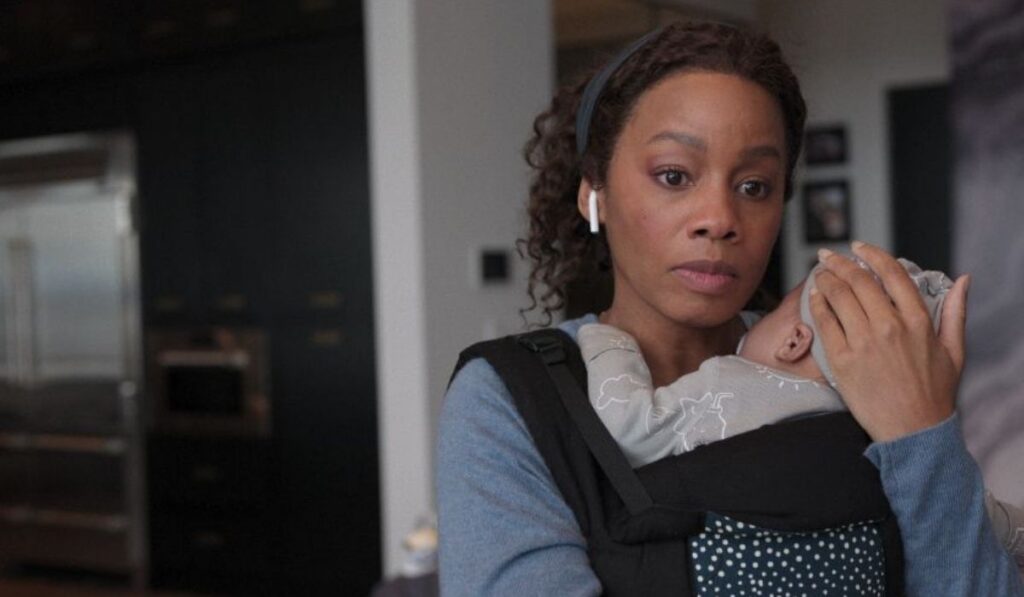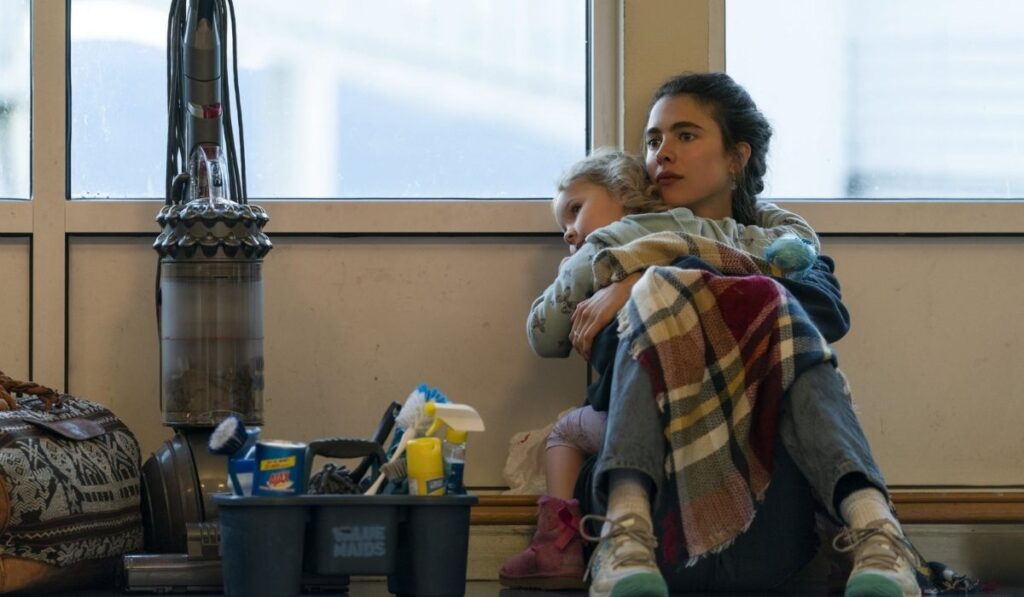Based on Stephanie Land’s Memoir “Maid,” this mini-series spotlights Alex’s matriarchal safari from rags to lesser rags. But, why is it mocked as man-hating, misery porn?

The Storyline Isn’t Misery Loving & Anti-Men
Alex (Margaret Qualley) is a single mother fleeing Sean (Nick Robinson): her emotionally abusive, alcoholic partner. She and her daughter, Maddy (Rylea Nevaeh Whittet), struggle to survive on a handful of dollars until a welfare officer recommends Alex as a maid. With Paula (Andie MacDowell), her manic mother, and Hank (Billy Burke), her physically abusive father, affording meaningless existence, this career is a silver lining Alex must limp on to qualify for state support.
The corollary storyline, characterisation, and visuals reveal rash social realities, as opposed to man hating and misery loving.
Domestic Abuse Is Actively Denied

Built on the bitter truth, “before they bite you, they bark, before they hit you, they hit near you,” MAID deconstructs variations of domestic abuse: emotional and financial abuse. While the state in which Alex resides does not recognise emotional abuse, Hank refuses to testify against Sean’, despite having been a first-hand witness. More pitifully, though some may say pornifyingly, Alex denies herself DV victim status, claiming she had not been hit.
People Are Differentially Privileged

The term MAID itself, as opposed to a housekeeper, seems to demean those like Alex. Parallels between herself and those she works for reinforce how impecunious the confessions of a maid may be. The audience, alongside Alex, learns how hiring a maid doesn’t render one rich, rather, differentially privileged. Juxtaposing Regina (Anika Noni Rose), whose cashmere scarf is for $1,400 alone and the pregnant mother who can barely pay Alex $10 per hour helps us understand so.
Rich In Money Is Not Rich In Mind

Alex may be the MAID, but those around her appear more malnourished: mentally malnourished. Be it Sean’s “alcohol problem,” Paula’s mania” or Alex’s clients’ battles with hoarding and Alzheimer, psychological starvation is shown class-blind and gender-blind, preying indiscriminately. In fact, towards the end Alex too falls victim to post-traumatic stress disorder.
Single Parenthood Is Easier Said Than Done

MAID spells single parenthood with failing, or some may say failed, state support. Scenes such as Alex’s court-mandated PEP class where the instructor defines “stability”: two parents, three meals, daycare and claims children lose a sense of “home” post parental separation, causing Chloe – a hypothetical kid – to suffer emotional, psychological, and academic difficulties by an increasing 55%.
From the storyline alone, it seems absolutely unfair to deem MAID a man despising misery dramatisation. Now, for the characterisation.
MAID’s Characterisation Is Not Manipulatively Misandrist

Some say manipulative, we say downright effective. Our affinity towards Alex doesn’t falter when creators afford the male characters some benefit of doubt. We pity Sean’s past featuring a druggie mother and absent father; we pity father Hank when he – although failingly – tries to fix things with Alex. Then, there’s Nate, [who] isn’t the man you think, but we reckon he’s the angel Alex needs since the start. Yet we despise them – not because they’re men – but because they’re immoral.
Tragedy Prone Visuals Aren’t Tragedy Porn

Be they of Sean hitting a wall so hard it leaves a hole or Alex puking to the stench of unflushed flushes, the visuals are indeed emotionally triggering. But Alex is not triumphant with tension, so these cannot be called misery porn. Instead, MAID is a mirror to a reality. Maybe, this has us bashing those beholding #NotAllMen and adding to the #maybehedoesnothityou campaign. But the show itself is not man-hating. It is action shaming and hence, abuse shaming, with its characters, especially Alex, making no love with her traumas.

